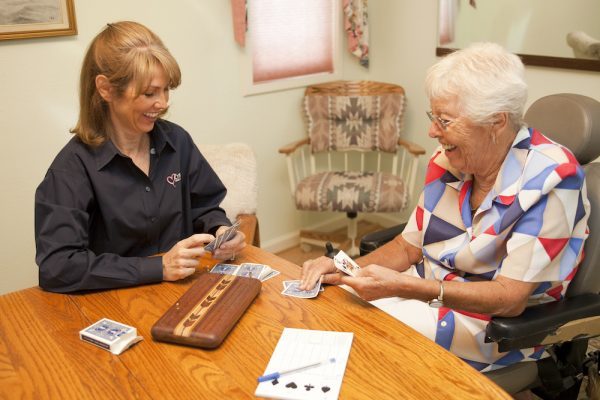When a person you love suffers memory loss, it’s difficult to adjust. You might struggle to accept a new version of someone you’ve known for a long time, and feel a tremendous amount of guilt because you are struggling. If memory problems have caused you to become frustrated while your loved one becomes agitated, you’re not alone.
As family caregivers, we often try to help by giving our loved ones “reality checks.” When they get things wrong, we think that reminding them of the truth will help. If you’ve ever done this, you know that it often backfires. This method is called reality orientation, and the problem is it doesn’t work. In fact, it can do more harm than good, by creating a confrontation that leads to emotional distress.
The Problem With Reality Orientation
When I was seven years old, I visited my great-grandfather in the hospital after he had suffered a stroke. When he saw me, the fog melted away from his expression, his eyes lit up, and he greeted me by calling me my mother’s name. Some of the relatives present tried explaining to him that I was his great-granddaughter, not his granddaughter; that my mother was all grown up now. When they pointed at my mother to illustrate this, he mistook her for my grandmother. He was a generation off.
At this point, we knew better than to correct him. My grandmother had passed away, and explaining her absence would be like giving him the news of his daughter’s death, as if for the first time. Nobody wanted to tell him that, so we dropped the matter. For an afternoon, I was my mother, she was her mother, and he felt really pleased that we’d come to visit.
Perhaps asserting the truth helps us feel some control over the situation, as if we can guide our loved one to clarity. Dementia is the unknown, but truth is familiar. It’s no wonder our instinct steers us toward defending what we know, in the hope it preserves or restores who we know. We want the truth to ground our relationship and make it safer for both parties. Yet in the later stages of progressive dementia, this expectation can cause pain.
Caregiver Empathy
We need to challenge ourselves to see the world through our loved one’s eyes. What if you felt elated to see your sweet granddaughter, and somebody insisted that you had never met that child before? That the child you were looking for was actually grown up? You would feel confused, perhaps deceived.
We can and should help our loved one’s memory in any way we can — for example, by empowering them to age in familiar surroundings. Enjoy the times when you recognize your loved one (and they recognize you!). But when the memory has limits, we need to respect them and work around them instead of trying to force our grasp of reality. We need to resist the urge to judge their condition as wrong; it is what it is, and treatments are limited until we find a cure.
Of course, accepting the dementia state of mind doesn’t mean you’re not allowed to feel sad, overwhelmed, or frustrated sometimes. If you need support as a family caregiver, please reach out.

